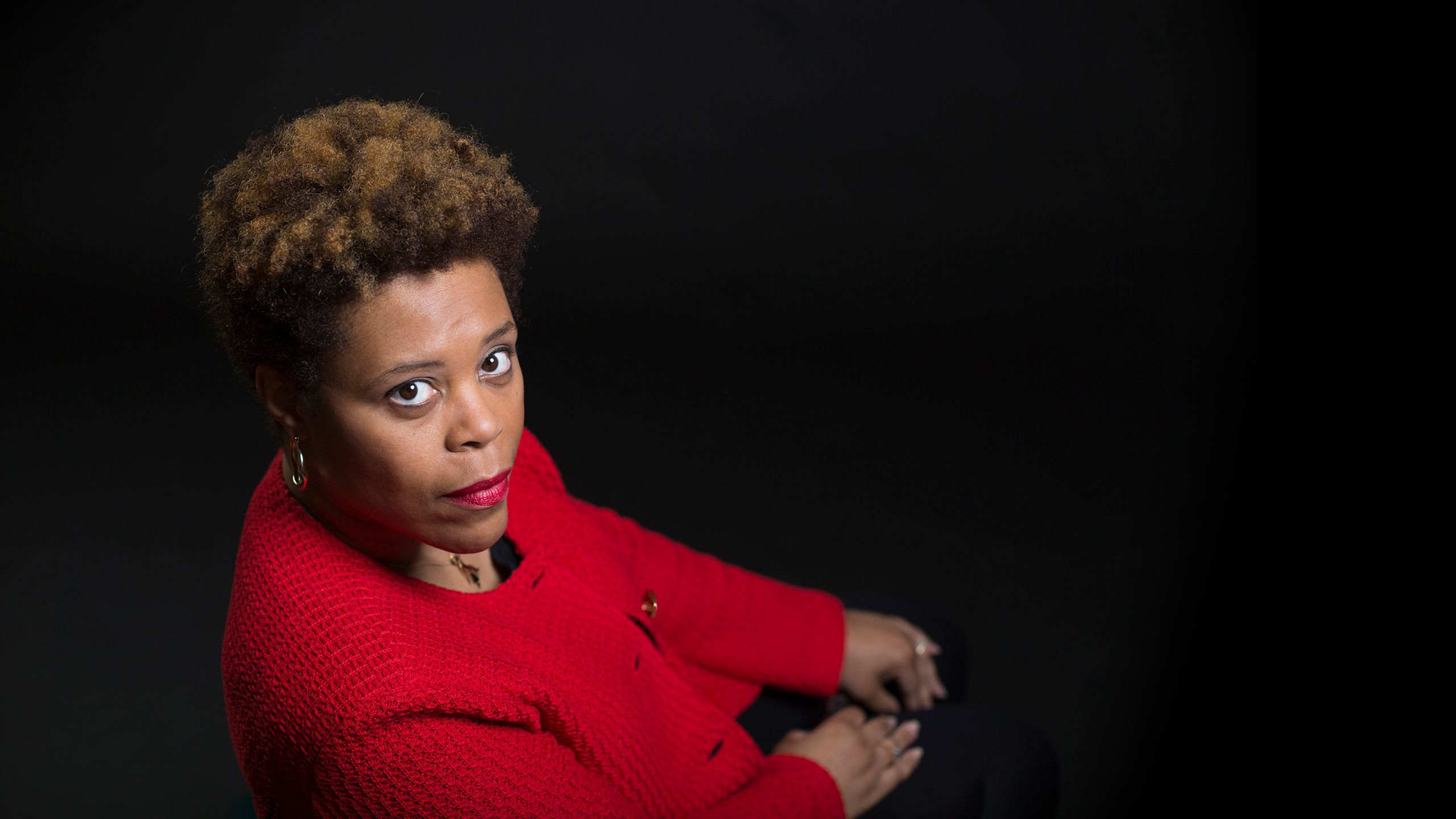PEARL K. DOWE
What I Know/What I Hope

I GREW UP IN SAVANNAH, during the post–civil rights era when the public system was under a court order to develop and maintain a desegregated school system. From first to twelfth grade, I was bussed along with other Black students from Black middle- and working-class neighborhoods to majority white schools.
Many of my school memories stem from how I was one of a few Black students taking advanced level courses. In this desegregated environment, I learned quickly that I was different, and that there was a deference afforded white students that was not afforded me. Despite my intelligence and capabilities, I was still treated as if I were invisible. As I became an adult it became clear to me that being a woman was an additional component of being deemed as “Other.”
And while I remain firmly grounded in my humanity—and the humanity of Black people—police brutality and the impact of structural racism says that I don’t matter and that my humanity should not be defended. This latest season of protest and calls of change has been heartening, but I know all too well the ebb and flow of equality and justice. Symbolic overtures—tearing down statues, removing racist logos, and the like—along with big dollar financial acts of philanthropy are (once again) being presented as substantive solutions to fix inequalities and promote social justice. But these meager offerings will not change the impact of four-hundred years of systemic subjugation that continues to manifest itself in everything from unpunished violence to vast disparities in wealth and health for Black people.
While the effort by allies to enact real change is always welcome, there is still much that rings hollow to me. Growing up in the South, I had a firsthand view of power in action. Desegregation was meant to provide equal opportunity, but power was still wielded to control where I went to school and shaped classroom dynamics that worked against me and my fellow Black students. When power is seen as too forceful, it shifts to something that looks softer. These softer ways are more subtle, but they continue to subjegate and tamper down acts of resistance.
As a Black woman, an academic, a social scientist, I am often asked my perspective on where the country is headed at this moment. While I am reluctant to believe that it will drastically change in the near future, I am still strongly confident in who I am and who I know Black people to be:
Where there are symbolic overtures from allies, there is a righteous indignation to advance justice by Black people.
Where there is brutality, there is a culture of community and dignity.
Where there is an acceptance of the mediocre, there is a commitment to excellence.
Where there is fear, there is an indomitable will to hold onto hope.
It is my hope that what I believe will eventually give me new memories of a just and humane country for everyone.
PEARL K. DOWE
Asa Griggs Candler Professor of Political Science and African American Studies
Dowe bridges her teaching and research in African American studies between Oxford College and Emory College of Arts and Sciences, where she focuses on Black women’s political ambition and public leadership.

WANT TO KNOW MORE?
Please visit Emory Magazine, Emory University and Emory News Center.

